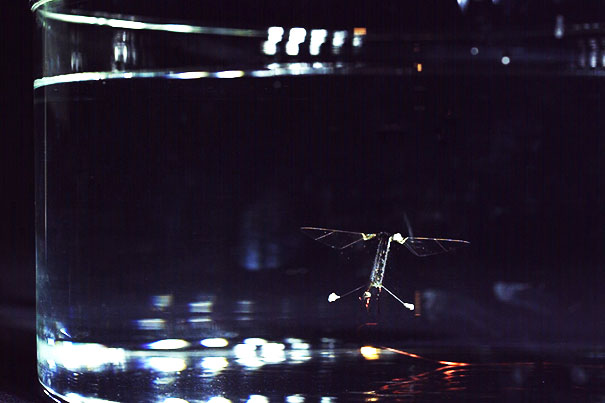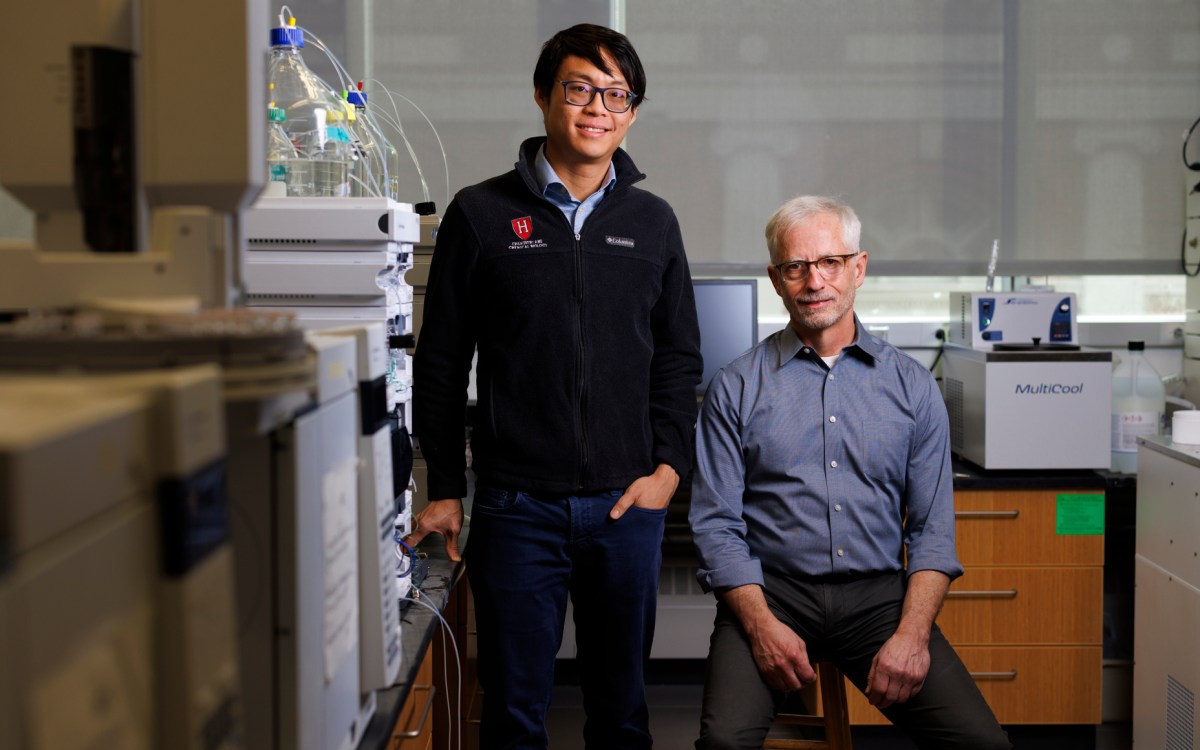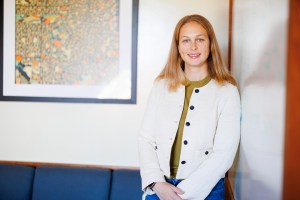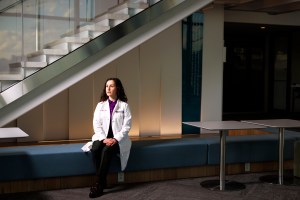Science & Tech
-
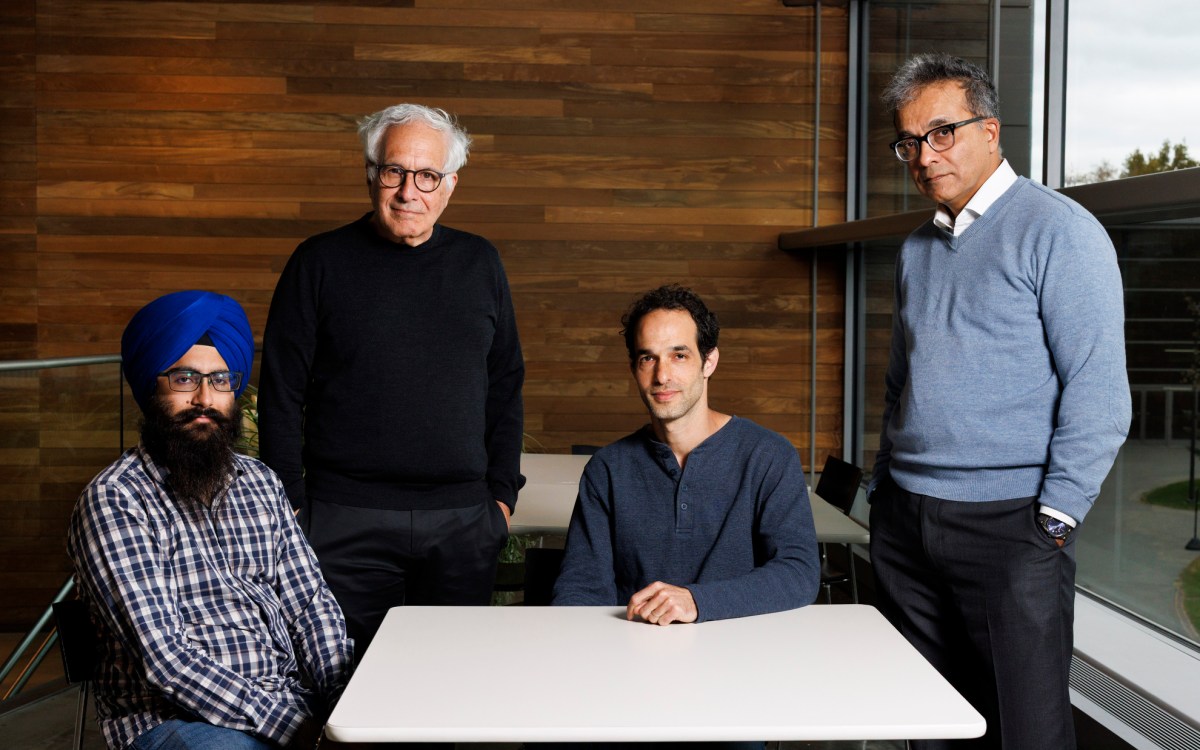
Want to speed brain research? It’s all in how you look at it.
New AI-enhanced scanning method promises to boost quest for high-resolution mapping
-
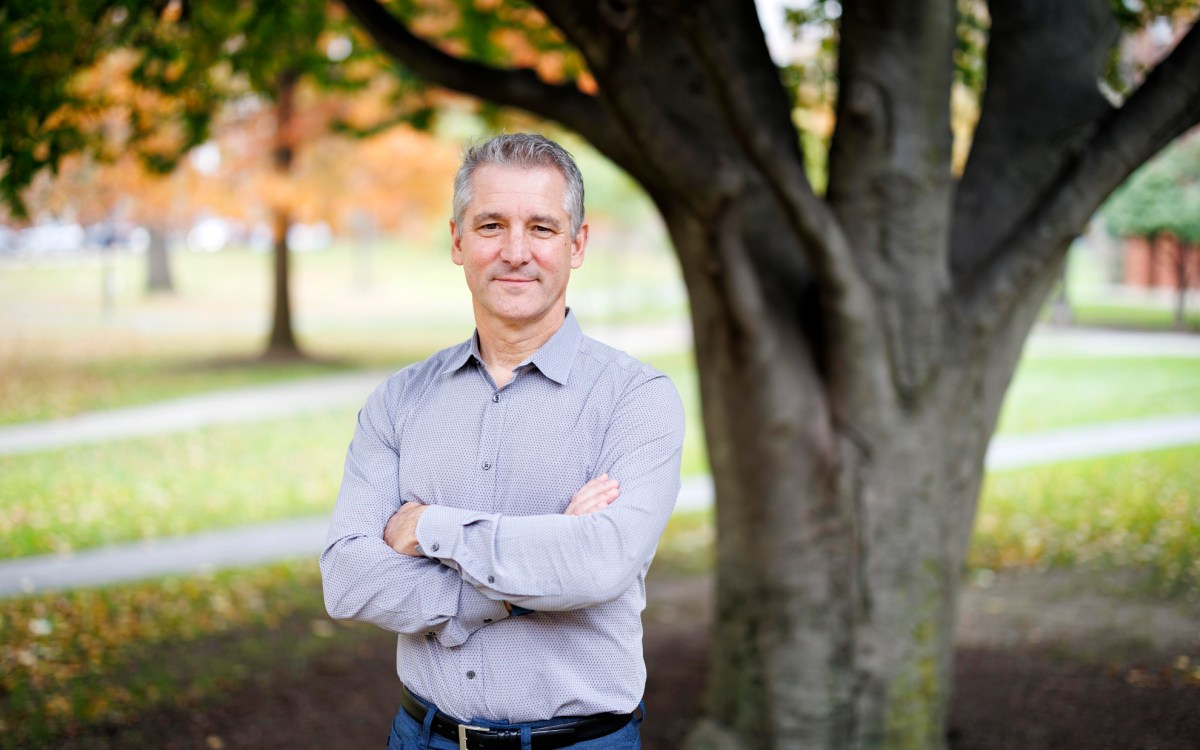
-
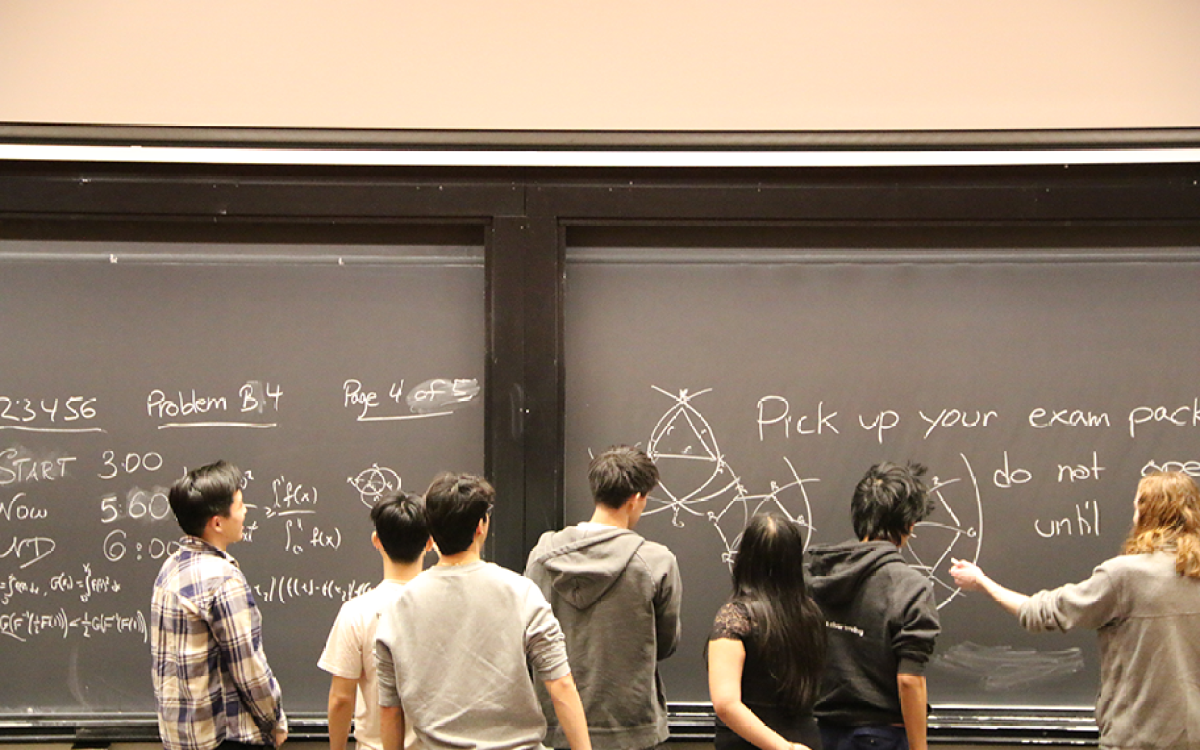
‘It just feels good when you solve the hard problems’
Why do students volunteer to take this notoriously difficult math exam? For the fun of it.
-
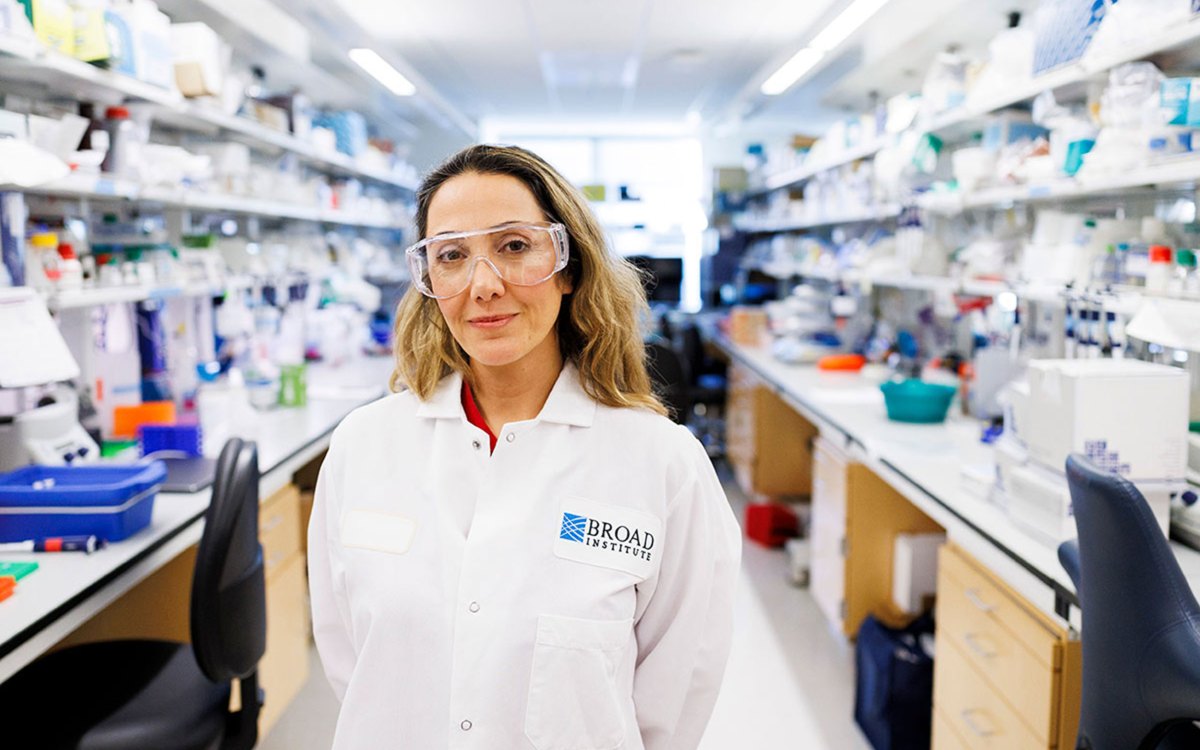
Stopping the next pandemic
Disease surveillance network faced ‘existential cliff’ despite proven success. Then came the $100 million.
-

Rethinking — and reframing — superintelligence
Microsoft researcher says separating AI from people makes systems dangerous and unproductive
-
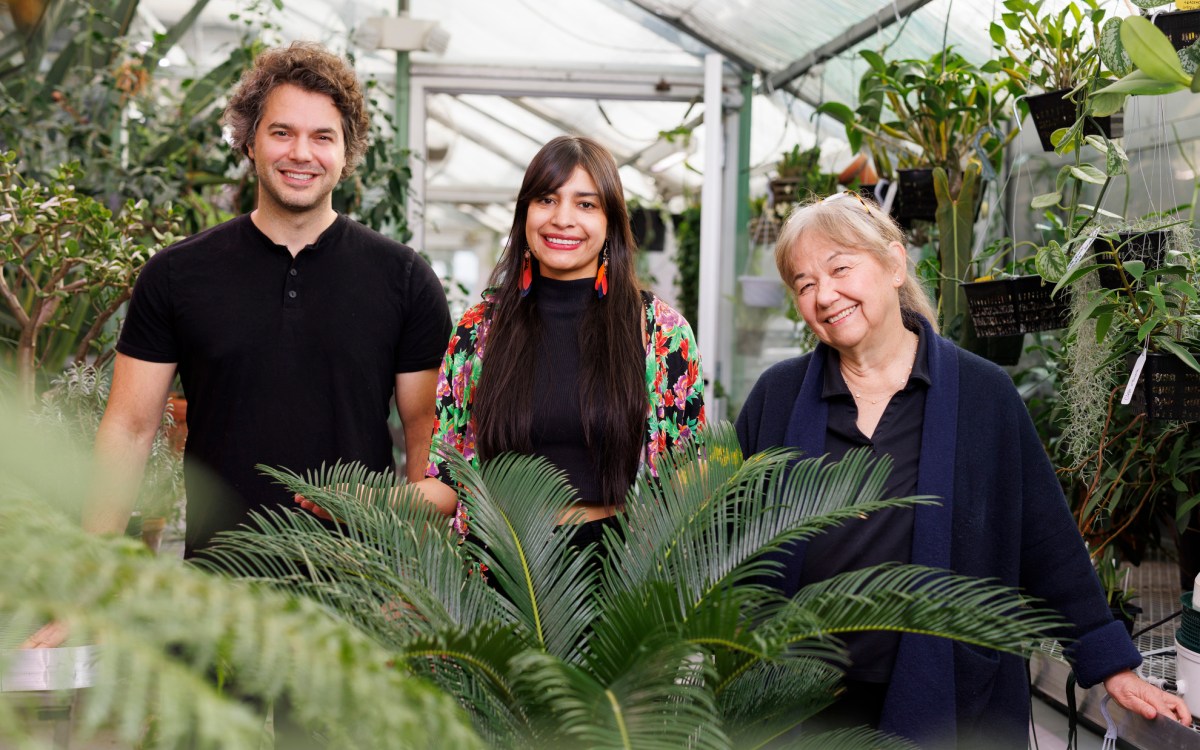
First, male gets heated up, then female, and then, you know
Study shows infrared radiation from plants serves as invitation to pollinating insects
-
Plants with biosensors may light the way
A team of researchers from the Wyss Institute and Harvard Medical School has developed a new method for engineering a broad range of biosensors to detect and signal virtually any desired molecule using living eukaryotic cells. Its applications could range from detecting hormones to benefiting agriculture.

-
How, not why, the human brain folds
Researchers at the Harvard John A. Paulson School of Engineering and Applied Sciences, collaborating with scientists in Finland and France, have shown what ultimately causes the brain to fold — a simple mechanical instability associated with buckling.

-
New World devastation
A new study led by Harvard’s Matthew Liebmann examines the health and ecological consequences of European colonists’ contact with Native Americans.
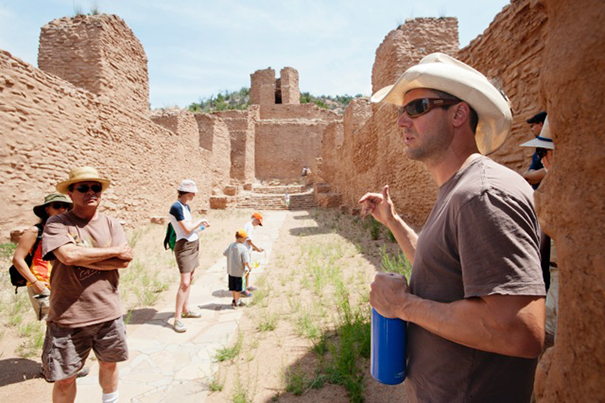
-
Mechanical stimulation shown to repair muscle
Harvard research teams find a promising new approach that uses direct mechanical stimulation to repair severely damaged skeletal muscles.
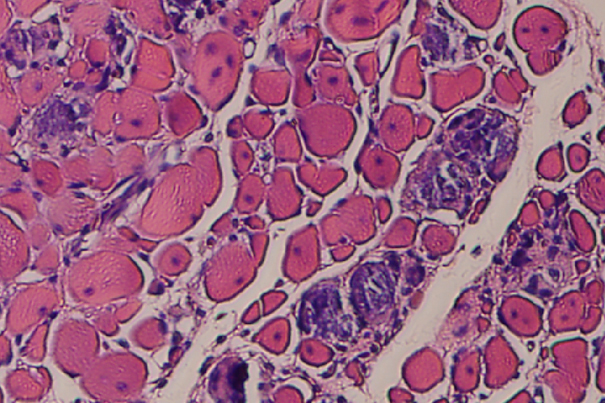
-
4D-printed structure changes shape when placed in water
A team of scientists at the Wyss Institute for Biologically Inspired Engineering at Harvard University and the Harvard John A. Paulson School of Engineering and Applied Sciences (SEAS) has evolved their microscale 3-D printing technology to the fourth dimension, time.
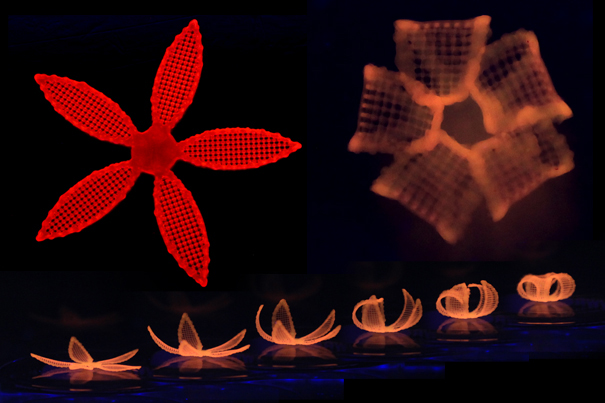
-
Leading through impact
For Harvard computer scientists, entrepreneurship is often a fulfilling extension of their cutting-edge research.
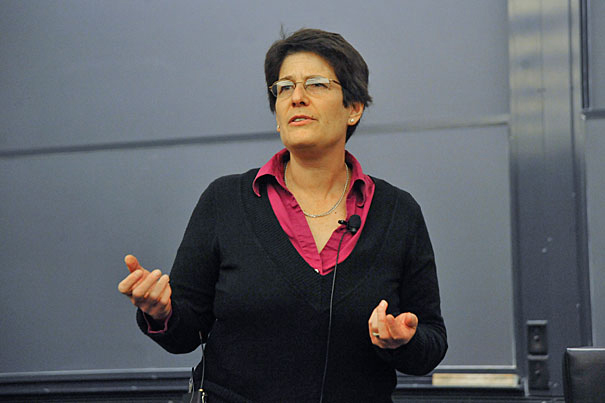
-
New destination for space-faring civilizations?
Globular star clusters date back almost to the birth of the Milky Way, and according to new research, they also could be extraordinarily good places to look for space-faring civilizations.
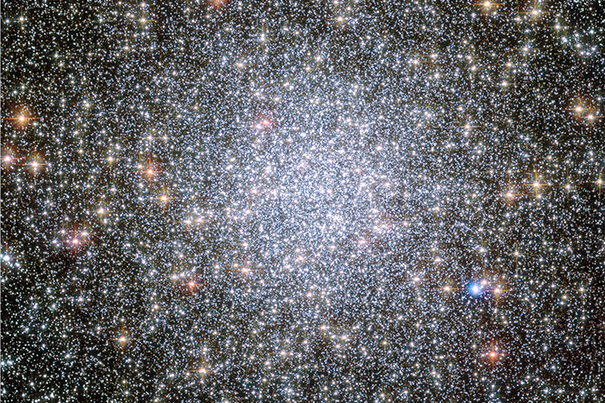
-
Did famine worsen the Black Death?
New European ice-core data provides a view of the difficult times that led up to and may have worsened the Black Death.
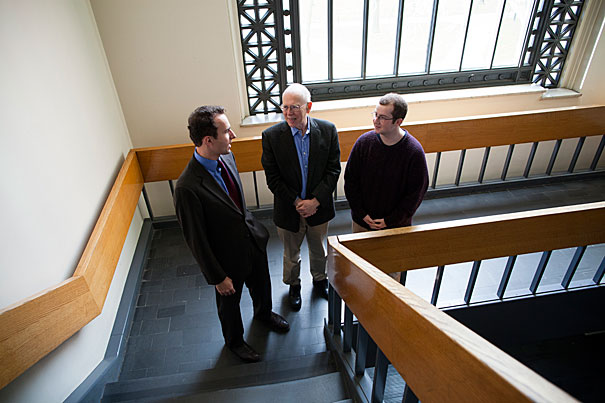
-
Artificial pancreas system aimed at type 1 diabetes mellitus
The University of Virginia School of Medicine and the Harvard John A. Paulson School of Engineering and Applied Sciences have developed an artificial pancreas system designed to help regulate blood sugar levels of individuals with type 1 diabetes mellitus.
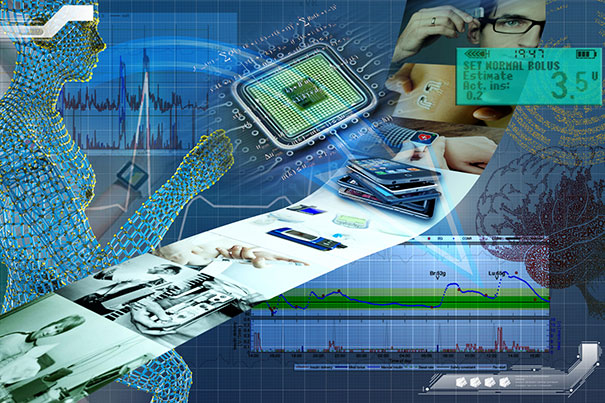
-
Study of African trees goes public
A postdoctoral fellow has launched a citizen-science project that aims to digitize thousands of pages of detailed observations on the life cycles of African trees.

-
When the ‘sharing economy’ doesn’t
Some Airbnb hosts discriminate on the basis of race, suggests a study by researchers at Harvard Business School.
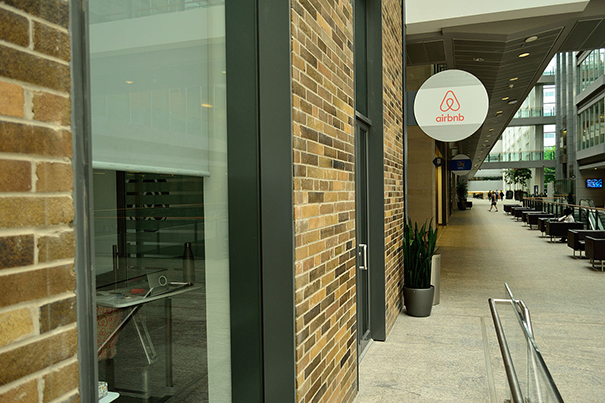
-
Paris deal a step toward better health, experts say
Panelists in a Harvard Chan School forum examined how the Paris climate agreement might affect human health.
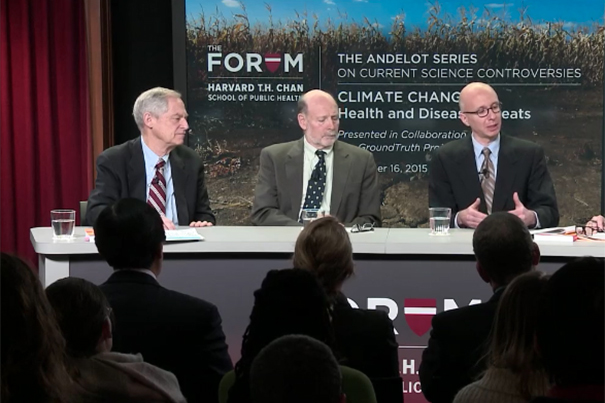
-
Disclosures on fracking lacking, study finds
Harvard researchers examined the nation’s registry, where oil and gas production companies disclose the chemicals they use in hydraulic fracturing, and found that they do it less than in the past.
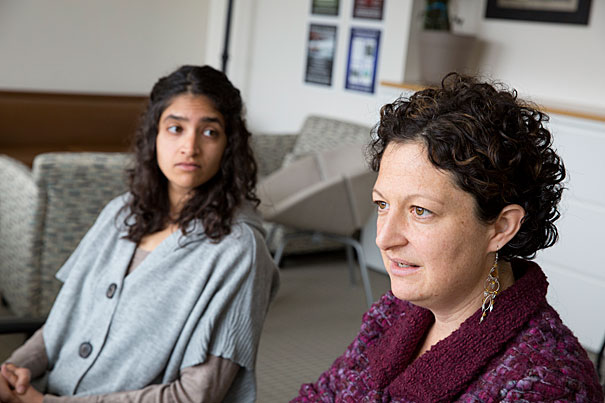
-
At last, global fretting on climate change
The Paris agreement to fight climate change greatly expands the international commitment to the cause, Harvard Professor Stavins says.
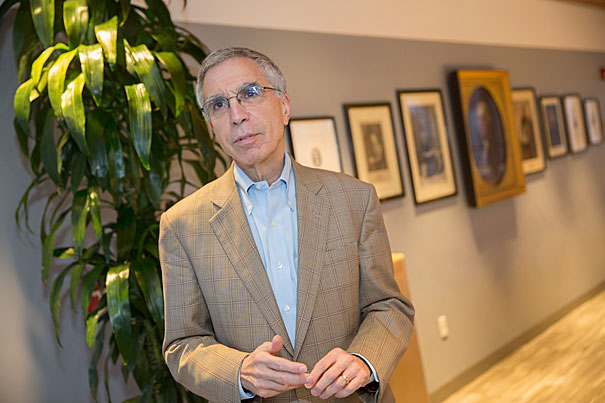
-
Mapping the road ahead for climate research
The need for continuous rigorous and relevant climate science will be more important than ever. With that framing, a group of scholars on Wednesday shared their ideas for improving the process by which the Intergovernmental Panel on Climate Change (IPCC) carries out its research agenda, at a side panel at the U.N. Climate Change Conference in Paris.
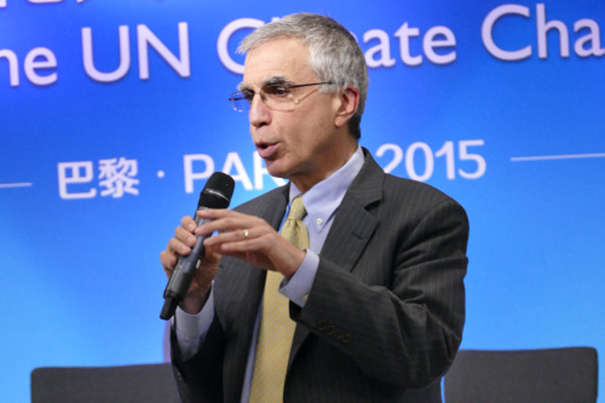
-
How climate agreement impacts business
The private sector — from large corporations to small businesses — will undoubtedly be impacted by whatever international agreement emerges from the U.N. Climate Change Conference taking place in Paris, but opinions vary as to how burdensome and costly those impacts will be.
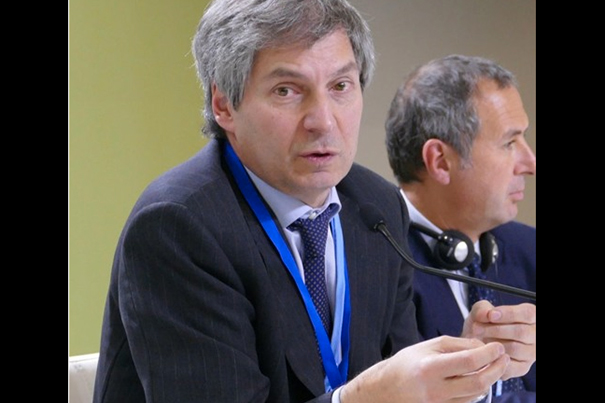
-
Sick planet, sick people
Harvard scientists are helping launch a new initiative to foster collaboration among scientists working at the intersection of the environment and health.
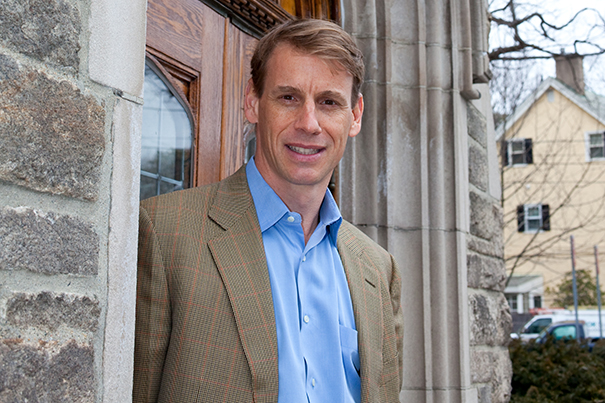
-
Harvard’s Stavins, Stowe compare climate change policies in Paris
A side-event panel titled “Dialogue on the Comparison of Climate Change Policies” on Friday at the Conference of the Parties (COP21) featured Robert Stavins, faculty director of the Harvard Project and Harvard Project Manager Robert Stowe.
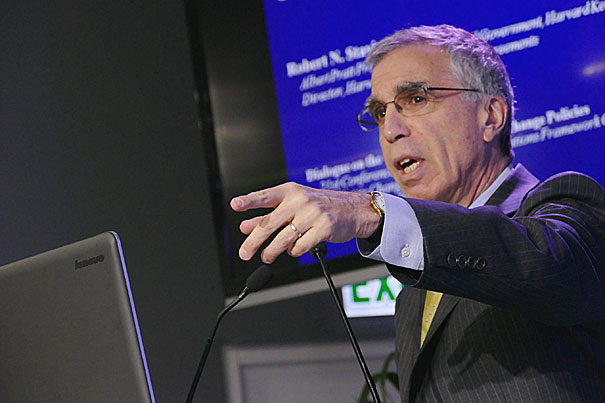
-
A focus on fairness
Using a simple game in which candy is distributed between two players, researchers found that children in various countries were quick to reject unfair deals, but in three countries they were also willing to reject deals unfair to others.
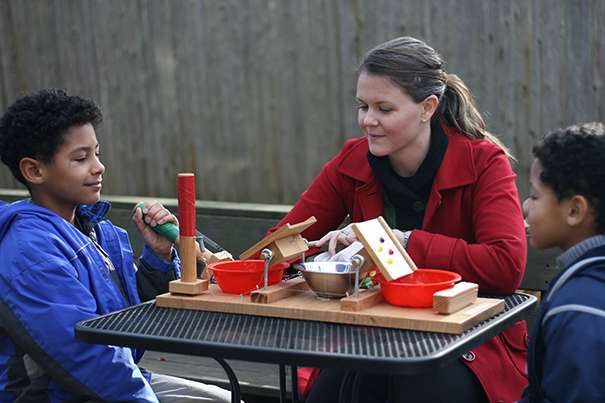
-
Optimism on U.N. climate talks
Panelists at the Kennedy School on Monday expressed optimism about the U.N. climate conference set to begin in Paris on Nov. 30, calling U.S. participation on the heels of domestic climate-related moves a “game-changer.”
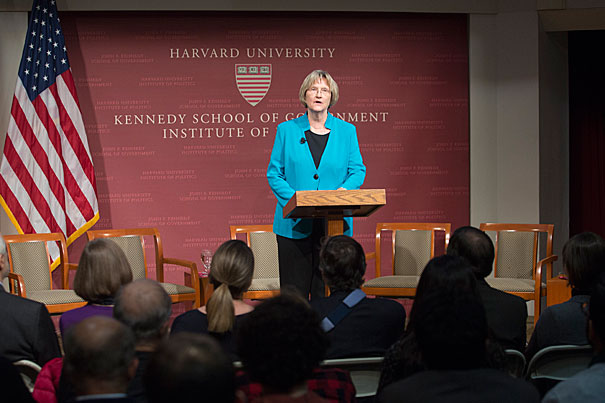
-
The rule-breaker
Speaking at the JFK Jr. Forum, architect Frank Gehry reflected on half a century of creating surprises.
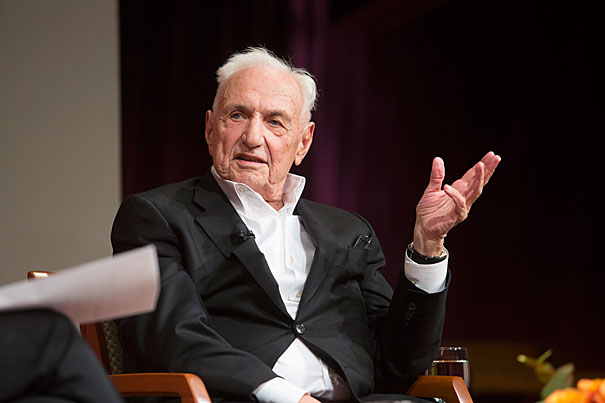
-
Cruft Laboratory goes to war
Harvard’s Cruft High Tension Laboratory was used in World War I as the Navy School for Radio Electricians. By World War II it was again called into service, this time assisting in the development of a torpedo that used acoustic technology to navigate toward an underwater submarine.
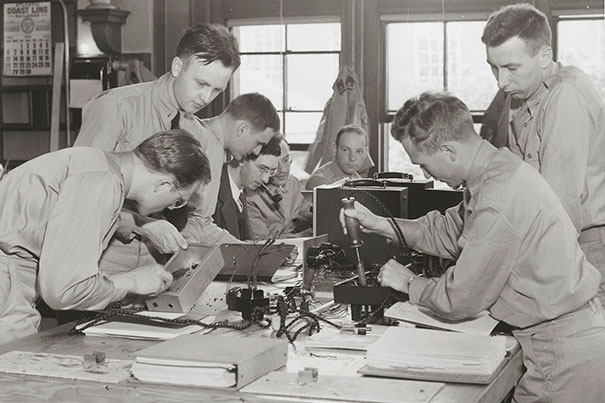
-
Lessons of the brain: The Phineas Gage story
During a construction explosion in 1848, an iron bar pierced the brain of foreman Phineas Gage. He survived, and his experiences opened a window into trauma and recovery.
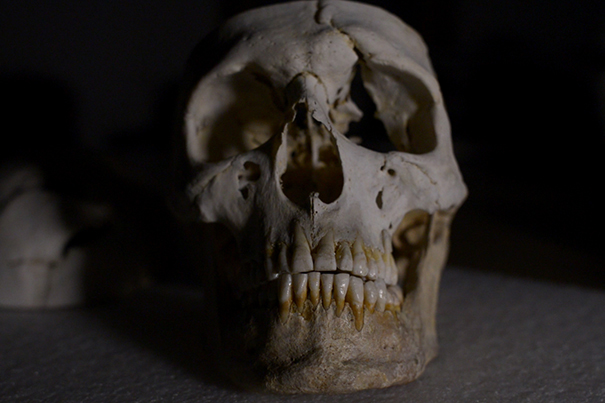
-
Returning to Martin Luther King Jr.’s legacy
Students in a new Graduate School of Design course use what they’ve learned to help restore the urban legacy of slain Civil Rights leader Martin Luther King Jr.

-
Pinpointing punishment
It’s a question most attorneys wish they could answer: How and why do judges and juries arrive at their decisions? The answer, according to Joshua Buckholtz, may lie in the…
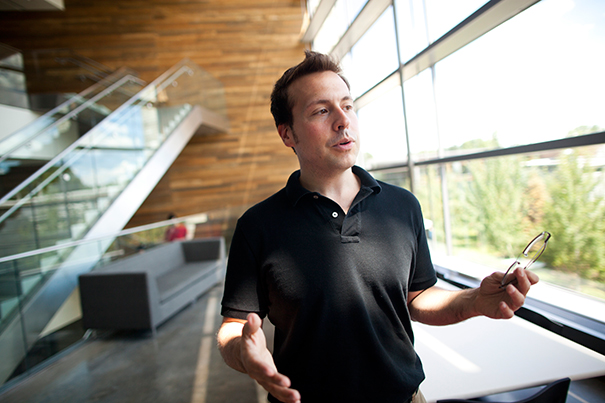
-
‘The Trouble with Jellyfish’
A video showcases “The Trouble with Jellyfish,” a new exhibition at Le Laboratoire Cambridge that spotlights a growing crisis beneath the sea.
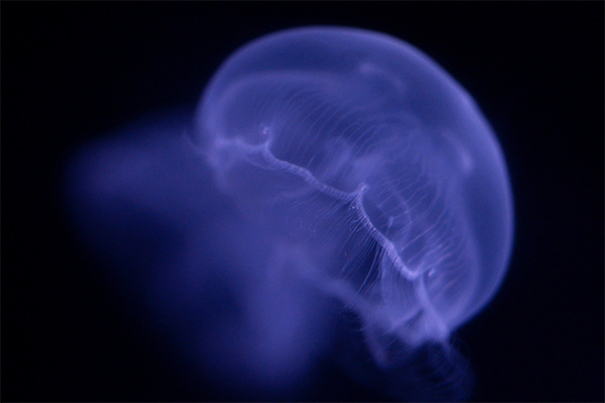
-
Dramatic chain of events
Harvard physicist Lisa Randall discusses the research behind her new book, “Dark Matter and the Dinosaurs.”
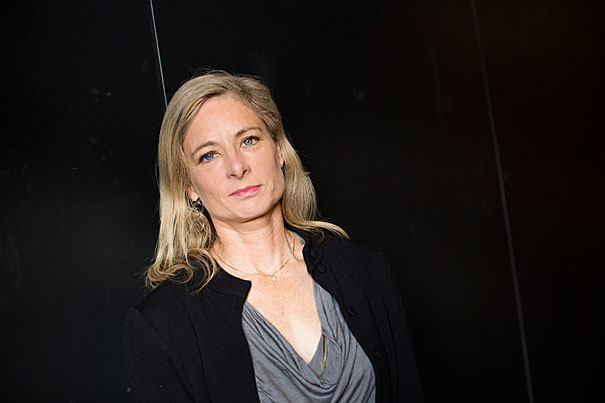
-
Wanted: Climate change solutions
Harvard will again fund grants of up to $150,000 for promising ideas to combat climate change.
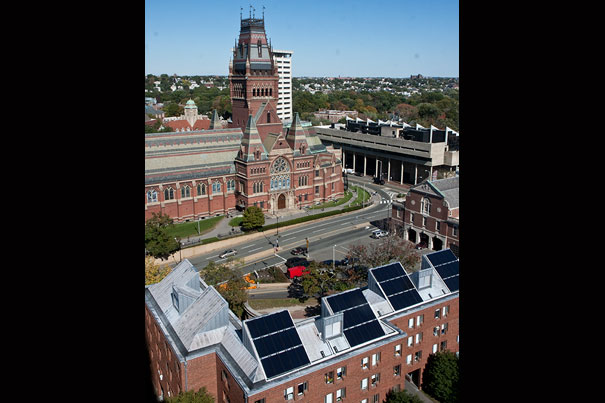
-
Cosmic ‘Death Star’ destroys a planet
Astronomers announced today that they have spotted a large, rocky object disintegrating in its death spiral around a distant white dwarf star. “We’re watching a solar system get destroyed,” noted a Harvard researcher.
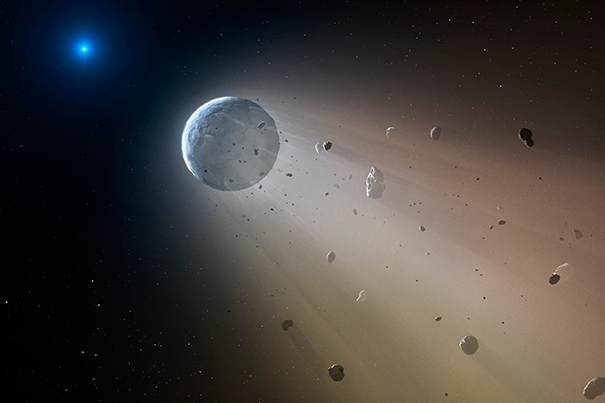
-
The tiny flying submarine
Harvard lab develops first insect-size robots capable of flight and swimming.
